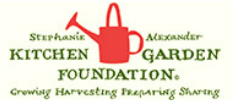Habits of Mind
The Habits of Mind are an identified set of 16 problem solving, life related skills, necessary to effectively operate in society and promote strategic reasoning, insightfulness, perseverance, creativity and craftsmanship. The understanding and application of these 16 Habits of Mind serve to provide the individual with skills to work through real life situations that equip that person to respond using awareness (cues), thought, and intentional strategy in order to gain a positive outcome. At Sacred Heart we practise Habits of Mind philosophy on a daily basis.
1. Persisting
Stick to it! Persevering in task Through to completion: remaining focused. Looking for ways to reach your goal when stuck. Not giving up.
2. Managing impulsivity
Take your Time! Thinking before acting: remaining calm, thoughtful and deliberative.
3. Listening with understanding and Empathy.
Understand Others! Devoting mental energy to another person’s thoughts and ideas. Make an effort to perceive another’s point of view and emotions.
4. Thinking flexibly
Look at it Another Way! Being able to change perspectives, generate alternatives, consider options.
5. Thinking about your thinking (Metacognition)
Know your knowing! Being aware of your own thoughts, strategies, feelings and actions and their effects on others.
6. Striving for accuracy
Check it again! Always do your best. Setting high standards. Checking and finding ways to improve constantly.
7. Questioning and problem posing
How do you know? Having a questioning attitude; knowing what data is needed and developing questioning strategies to produce that data. Finding problems to solve.
8. Applying past knowledge to new situations
Use what you learn! Accessing prior knowledge; transferring knowledge beyond the situation in which it was learned.
9. Thinking and communication with clarity and precision
Be clear! Striving for accurate communication in both written and oral form; avoiding over generalizations, distortions, delegations and exaggerations.
10. Gather data through all senses:
Use your natural pathways! Pay attention to the world around you. Gather data through all the senses; taste, touch, smell, hearing and sight.
11. Creating, imagining and Innovating
Try a different way! Generating new and novel ideas, fluency, originality.
12. Responding with wonderment and awe
Have fun figuring it out! Finding the world awesome, mysterious and being intrigued with phenomena and beauty.
13. Taking responsible risks
Venture out! Being adventuresome; Living on the edge of one’s competence. Try new things constantly.
14. Finding humor
Laugh a little! Finding the whimsical, incongruous and unexpected. Being able to laugh at oneself.
15. Thinking interdependently
Work together! Being able to work in and learn from others in reciprocal situations. Team work
16. Remaining open to continuous learning
Learn from experiences! Having humility and pride when admitting we don’t know; resisting complacency.
1. Persisting
Stick to it! Persevering in task Through to completion: remaining focused. Looking for ways to reach your goal when stuck. Not giving up.
2. Managing impulsivity
Take your Time! Thinking before acting: remaining calm, thoughtful and deliberative.
3. Listening with understanding and Empathy.
Understand Others! Devoting mental energy to another person’s thoughts and ideas. Make an effort to perceive another’s point of view and emotions.
4. Thinking flexibly
Look at it Another Way! Being able to change perspectives, generate alternatives, consider options.
5. Thinking about your thinking (Metacognition)
Know your knowing! Being aware of your own thoughts, strategies, feelings and actions and their effects on others.
6. Striving for accuracy
Check it again! Always do your best. Setting high standards. Checking and finding ways to improve constantly.
7. Questioning and problem posing
How do you know? Having a questioning attitude; knowing what data is needed and developing questioning strategies to produce that data. Finding problems to solve.
8. Applying past knowledge to new situations
Use what you learn! Accessing prior knowledge; transferring knowledge beyond the situation in which it was learned.
9. Thinking and communication with clarity and precision
Be clear! Striving for accurate communication in both written and oral form; avoiding over generalizations, distortions, delegations and exaggerations.
10. Gather data through all senses:
Use your natural pathways! Pay attention to the world around you. Gather data through all the senses; taste, touch, smell, hearing and sight.
11. Creating, imagining and Innovating
Try a different way! Generating new and novel ideas, fluency, originality.
12. Responding with wonderment and awe
Have fun figuring it out! Finding the world awesome, mysterious and being intrigued with phenomena and beauty.
13. Taking responsible risks
Venture out! Being adventuresome; Living on the edge of one’s competence. Try new things constantly.
14. Finding humor
Laugh a little! Finding the whimsical, incongruous and unexpected. Being able to laugh at oneself.
15. Thinking interdependently
Work together! Being able to work in and learn from others in reciprocal situations. Team work
16. Remaining open to continuous learning
Learn from experiences! Having humility and pride when admitting we don’t know; resisting complacency.




